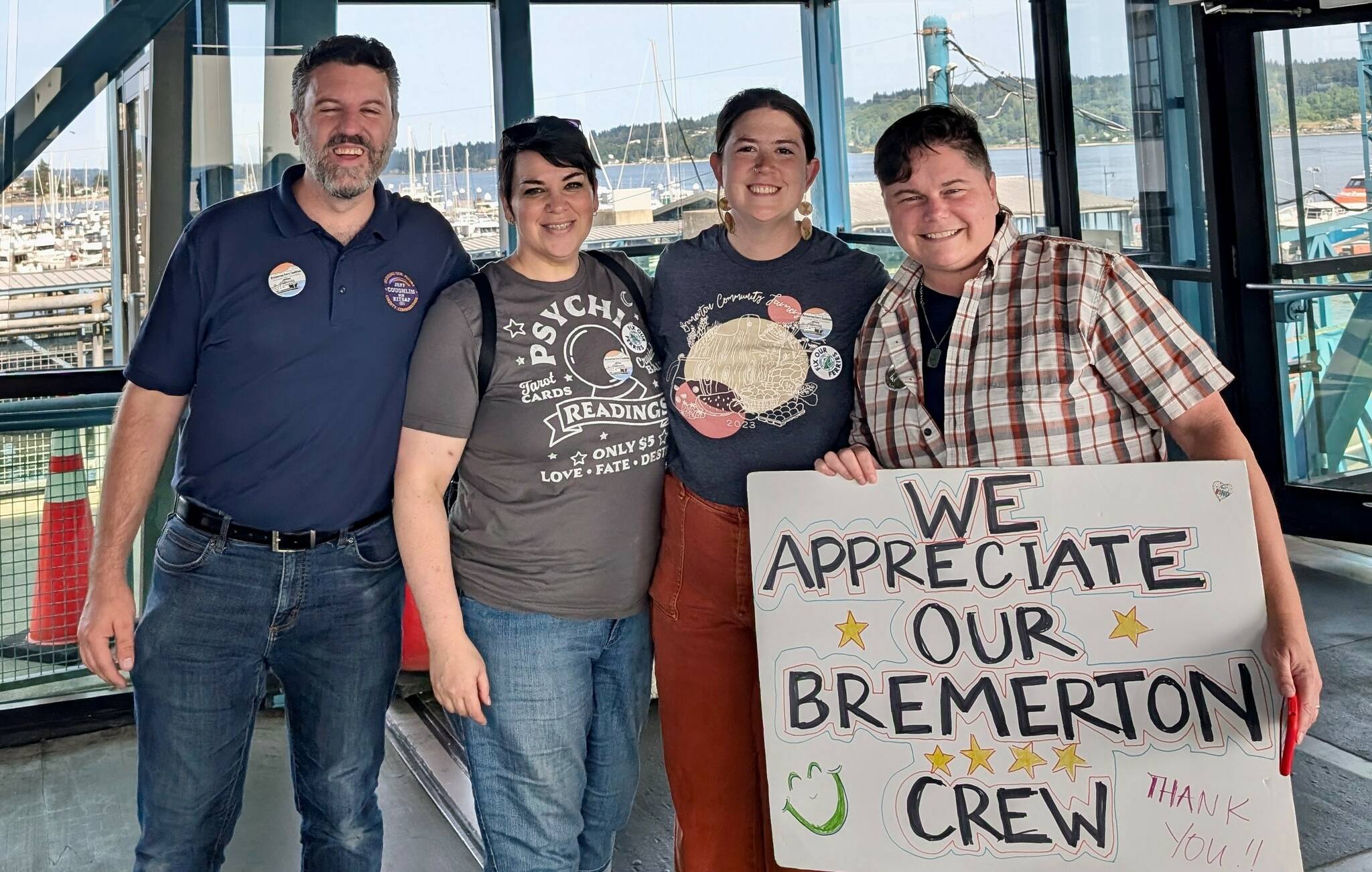Whidbey ferry riders might be interested in joining a new citizen action movement as it prepares to host its first legislative summit just a boat ride away.
Comprised of several ferry-related advocacy groups from different communities around Puget Sound, the Fix Our Ferries movement aims to advance productive solutions for the issues that Washington State Ferries currently faces.
“We live it every day and we know how fragile our system really is,” Vashon-Maury Island Chamber of Commerce executive director and Fix Our Ferries organizer Amy Drayer said.
This Saturday, Nov. 16, citizen activists, advocates, city, county, and local agency leadership, Ferry Advisory Committees, chambers of commerce, tourism agencies and all ferry stakeholders are invited to a regional summit at the Rosehill Community Center in Mukilteo. The event, which runs from 10 a.m. to 4 p.m., includes a panel of elected officials. Island County Commissioner Janet St. Clair and State Rep. Clyde Shavers both plan to attend.
“This is something I’ve been working with other county leaders on for a better part of a year for more,” St. Clair, who represents North Whidbey and Camano Island, said.
In his role, Shavers has been working on policy that would introduce a maritime industry curriculum into high schools.
“Fixing our ferry system has always been our priority, and we all understand that we are in a crisis right now where the lack of workforce, the frequent breakdowns of our ferries is really causing harm to our communities across Washington State and on Whidbey,” he said.
The new coalition includes groups Islanders for Ferry Action, Bremerton Ferry Coalition, Community Water Taxi and Ferry Lovers of Washington.
Fix Our Ferries has identified three priorities: invest in building new boats over the next decade in addition to the five new hybrid-electric ones in the pipeline, pay mariners equitable wages, and promote transparency and accountability throughout Washington State Ferries.
“Five new boats isn’t going to cut it for our communities that are still affected by this ferry crisis,” Drayer said.
A Vashon Island resident, Drayer relies on the ferry system’s triangle route to move between the island, the mainland and the Olympic Peninsula. For the past four years, her route has been operating with two boats – and sometimes one – instead of the pre-pandemic three. The triangle route is served by the Issaquah class boats, which were built between 1979 to 1982 and often require maintenance given their advanced age. As she pointed out, a single boat taken out of service causes a chain reaction that reverberates through the whole system and has repercussions for all other routes.
Drayer feels that the ferry system’s reporting tools paint an inaccurate, rosy picture of performance when boats are significantly delayed. According to Washington State Ferries data, in September 2024, 82.1% of boats systemwide were on time in the last 12 months.
Just like on Whidbey Island, a delayed or canceled sailing can mean missing work, a flight, medical appointments or time with friends and family. Drayer emphasized that a single cancelation can affect hundreds of people.
“There’s a lot of emotion when it comes to the boats, when you’ve been sitting on a dock for four hours or you’re stranded because the last boat got canceled,” she said.
The movement has collected over 3,000 signatures for a change.org petition titled “Fix the Washington State Ferry System.”
At the summit on Saturday, advocates and legislators from ferry communities will discuss strategies to move forward at local and state levels. Drayer said it offers an opportunity for activists to learn how to be most effective during the upcoming legislative session.
Toward the end of the afternoon, participants will discuss when to do lobby days and community action days. The latter could include thank-you cards to ferry workers on the boats and docks or a demonstration or educational event down by a ferry terminal.
“We want to go broader. We want to open up the conversation,” Drayer said. “We want to bring in any other communities that want to organize.”
To learn more or to register for the upcoming summit, visit fixourferries.org. A suggested $20 donation will cover the cost of attendance.



